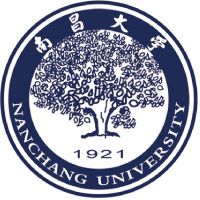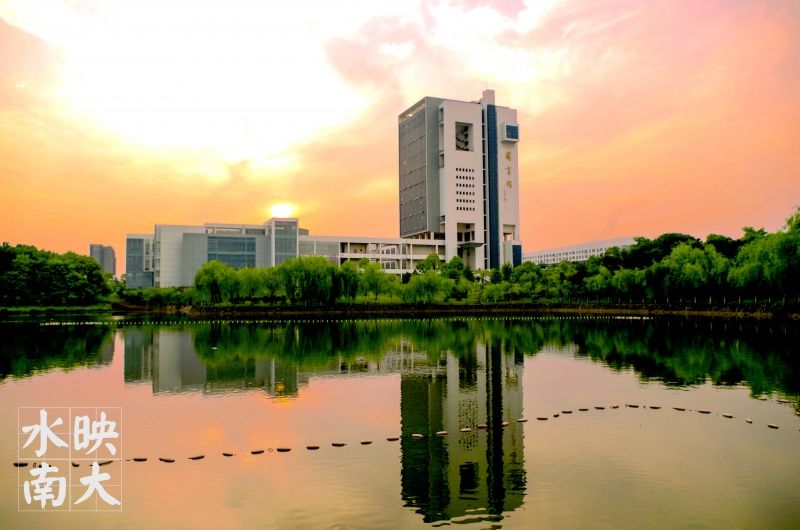
- EN
- 中文
School of Optometry

School emblem
·Nanchang University
Nanchang University is a world-class discipline construction university under the national "Double First Class" plan, and the only national "211 Project" key construction university in Jiangxi Province. It is a joint university built by the Ministry of Education and Jiangxi Province, and a high-level university in Jiangxi Province. .
The school is located in Nanchang City, the "Hero City". It has 5 campuses including Qianhu, Qingshan Lake, Donghu, Poyang Lake and Fuzhou. The main campus of Qianhu covers an area of 4,520 acres and the school building area is 1.3 million square meters.
The school started in the Jiangxi Public Medical College established in 1921 and the National Chung Cheng University established in 1940. In 1993, Jiangxi University and Jiangxi University of Technology merged to form Nanchang University, setting a precedent for the reform of the national higher education system. In 2005, Nanchang University and Jiangxi Medical College merged to form New Nanchang University, which opened a new page in the reform and development of the school. Party and state leaders, the Ministry of Education, the Jiangxi Provincial Party Committee and the Provincial Government attach great importance to the construction and development of schools. In October 2008, when Comrade Xi Jinping inspected the school, he sent a fond message "Nanchang University has unlimited prospects." In February 2016, General Secretary Xi Jinping visited the school again, delivered an important speech on scientific research innovation and talent training in universities, and encouraged the school to take the path of innovation and development. He hoped that contemporary college students would cherish their youth, pave the way for youth, and extend their ideals.
The school now has the Department of Humanities and Social Sciences, the Department of Science and Engineering, and the Department of Medicine. It has more than 100 undergraduate majors in 12 disciplines, 3 national key (cultivation) disciplines, 15 first-level disciplines authorized for doctoral degree, and 46 authorized masters for one Level disciplines, 1 doctoral professional degree authorization and 23 master professional degree authorizations (including 20 fields for engineering masters), and 11 post-doctoral research stations. The school has 5 affiliated hospitals and a total of 9 national key clinical specialties. The school's chemistry, clinical medicine, agricultural science, engineering, and materials science are among the top 1% of the ESI world rankings, of which agricultural sciences (mainly food science and engineering) and clinical medicine are among the top 5‰ of the ESI world rankings. In the fourth round of national overall evaluation of disciplines, food science and engineering ranked third.
The school has 4481 faculty members (including 2597 full-time teachers and 1429 full-time professors), including 4 "double-employed" academicians, 2 chief scientists of the national "973 Program", and candidates for the national "Thousand Talents Program" innovation project 5 people, 4 people selected for the "Thousand Young Talents Program", 8 national "Ten Thousand Talents Program" leading talents, 1 young top talent, 4 national "Outstanding Youth Science Funds" winners, and "Outstanding Youth Science Funds" 2 persons, 5 "Changjiang Scholars" distinguished professors, 2 candidates for the "Hundred Talents Program" of the Chinese Academy of Sciences, 1 national outstanding doctoral dissertation advisor, 16 national "Hundreds and Thousands of Talents Project", 1 academician of the International Academy of Food Sciences, There are 1 member of the Academic Degrees Committee of the State Council, 2 members of the Science and Technology Committee of the Ministry of Education, 3 leading talents of the Ministry of Science and Technology, and 12 members of the Ministry of Education's "New (Cross) Century Excellent Talent Support Program". The school has emerged a number of models of advocating morality and dedication to work, such as Zou Defeng, winner of the "Nightingale Medal", the highest honor in the international nursing industry, and Jiang Fengyi, a national outstanding Communist Party member.
There are 35,660 full-time undergraduate students in the school headquarters, 14,864 postgraduate students, and 963 foreign students. The school actively explores a new model for cultivating top-notch innovative talents, and established the "Jiluan Academy" to promote the reform of interdisciplinary and inter-academic talent cultivation. In 2014, the school won 3 second prizes of national teaching achievement. Since its establishment, the school has cultivated more than 400,000 outstanding talents, making important contributions to national and local economic and social development.
The school is an excellent university in the evaluation of the undergraduate teaching work level of ordinary universities under the Ministry of Education. It has successfully accepted the undergraduate teaching work review and evaluation and has a solid foundation for running a school. There are 1 national teaching teacher, 1 national teaching team, 1 national bilingual teaching demonstration course, 2 national quality courses, 1 national English-taught brand course, 4 national quality video open courses, 2 National-level quality resource sharing courses, 3 national-level quality online open courses, 3 national-level professional comprehensive reform pilot projects, 9 "Twelfth Five-Year" national-level planning textbooks, 9 national-level characteristic majors, 2 national-level Virtual Simulation Experimental Teaching Center, 5 National Experimental Teaching Demonstration Centers, 2 National Off-campus Practice Education Bases for College Students, 4 National Engineering Practice Education Centers, 14 Undergraduate National Excellent Talent Education and Training Programs. The school is the first batch of demonstration universities in the country to deepen the reform of innovation and entrepreneurship education, is the main node unit of China Education and Research Network (CERNET) Jiangxi of the Ministry of Education, and the only university in Jiangxi that participates in the construction of China's next-generation Internet demonstration project CNGI.
The school has 1 national key laboratory, 1 national engineering technology research center, 1 national and local joint engineering research center, 1 national international cooperation base, 1 key research base of humanities and social sciences of the Ministry of Education, and 1 national red tourism Innovation and Development Research Base, 2 Key Laboratories of the Ministry of Education, 3 Engineering Research Centers of the Ministry of Education, 1 National University Science Park, and 9 Collaborative Innovation Centers of Jiangxi Province. In 2017, the school was approved for 273 projects from the National Natural Science Foundation of China. The direct funding exceeded 100 million yuan for the first time. The number of projects ranked 22nd in the country. It was approved for 24 projects of the National Social Science Fund, including one-time bid for the major National Social Science Fund. There are 3 projects, and the number of projects is tied for 26th among universities in the country.
The collaborative innovation ability of the school has been continuously enhanced, and a number of original, iconic and distinctive scientific research results have been achieved. The project of Professor Jiang Fengyi’s team "High-efficiency GaN-based blue light-emitting diodes on silicon substrates" won the first prize of the only national technology invention in 2015. This is the first first prize won by a local university since the establishment of the National Science and Technology Award. Boost Jiangxi to build "Nanchang Optics Valley". The school's high-level scientific research papers have made breakthroughs and have been published in Science, Nature and Cell Stem Cell. The school has also carried out all-round and multi-level cooperation with the government, enterprises and institutions to promote the transformation of scientific and technological achievements and promote the close integration of government, industry, education, research and application.
The school attaches great importance to international education, and has established stable exchanges and cooperation with more than 100 universities and scientific research institutions in more than 30 countries (regions). Confucius Institutes and Confucius Classrooms have been established in the University of Poitiers in France, Hassanuddin University in Indonesia and the University of Castilla La Mancha in Spain. The school cooperated with the Canadian Ministry of Agriculture and Agri-Food to build a joint laboratory for food science and technology.
Entering the new era, Nanchang University adheres to the foundation of morality, innovation and leadership, reforms to tackle tough issues, and strives to start a new journey of high-level university construction in the new era, strives to improve school management, serve the new state of the country and local areas, and create "education-oriented, The new situation of innovation-driven, hard work, and striving for first-class" writes the pen to create a high-level university to achieve a century of glory.
The campus environment
